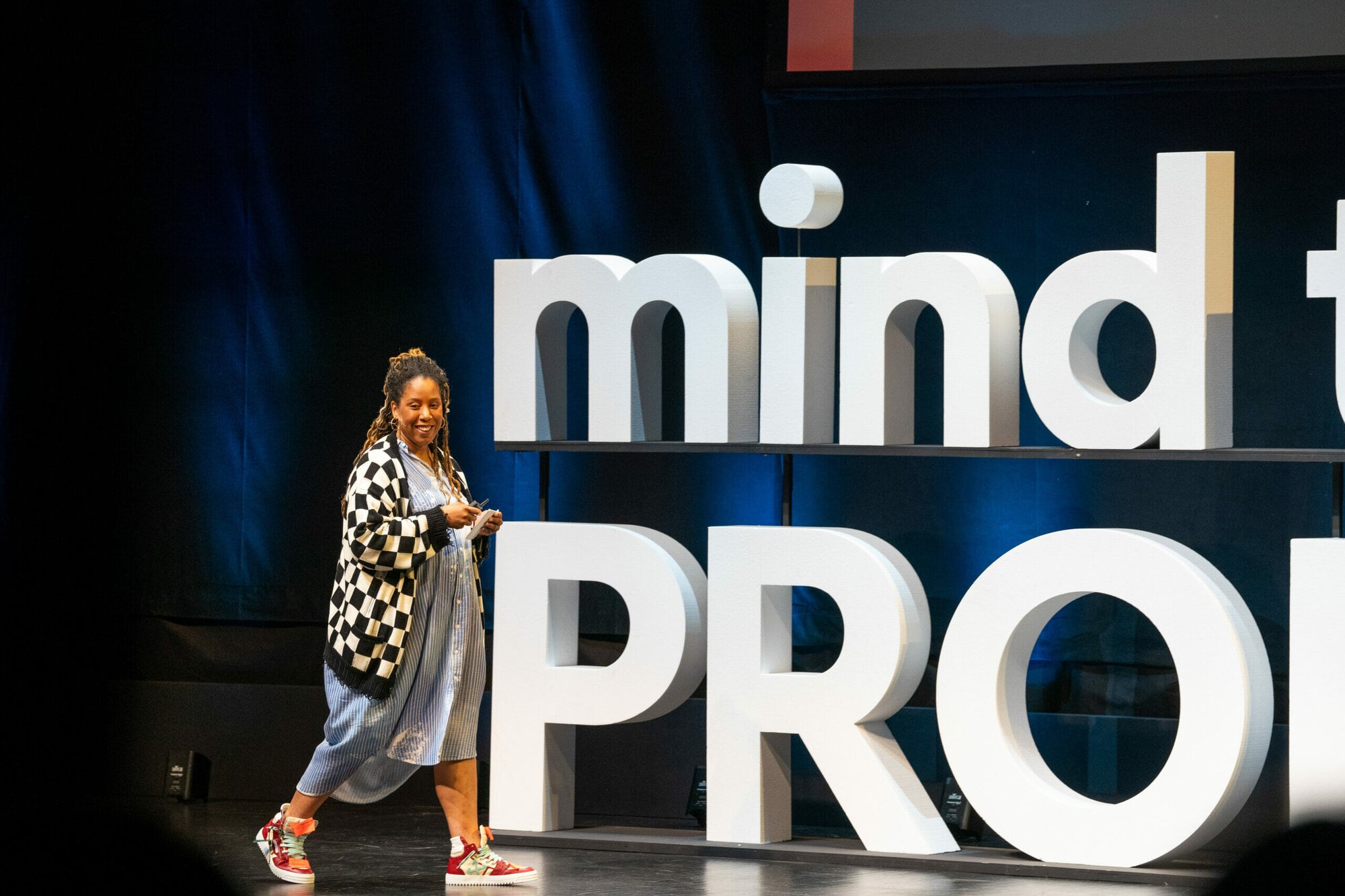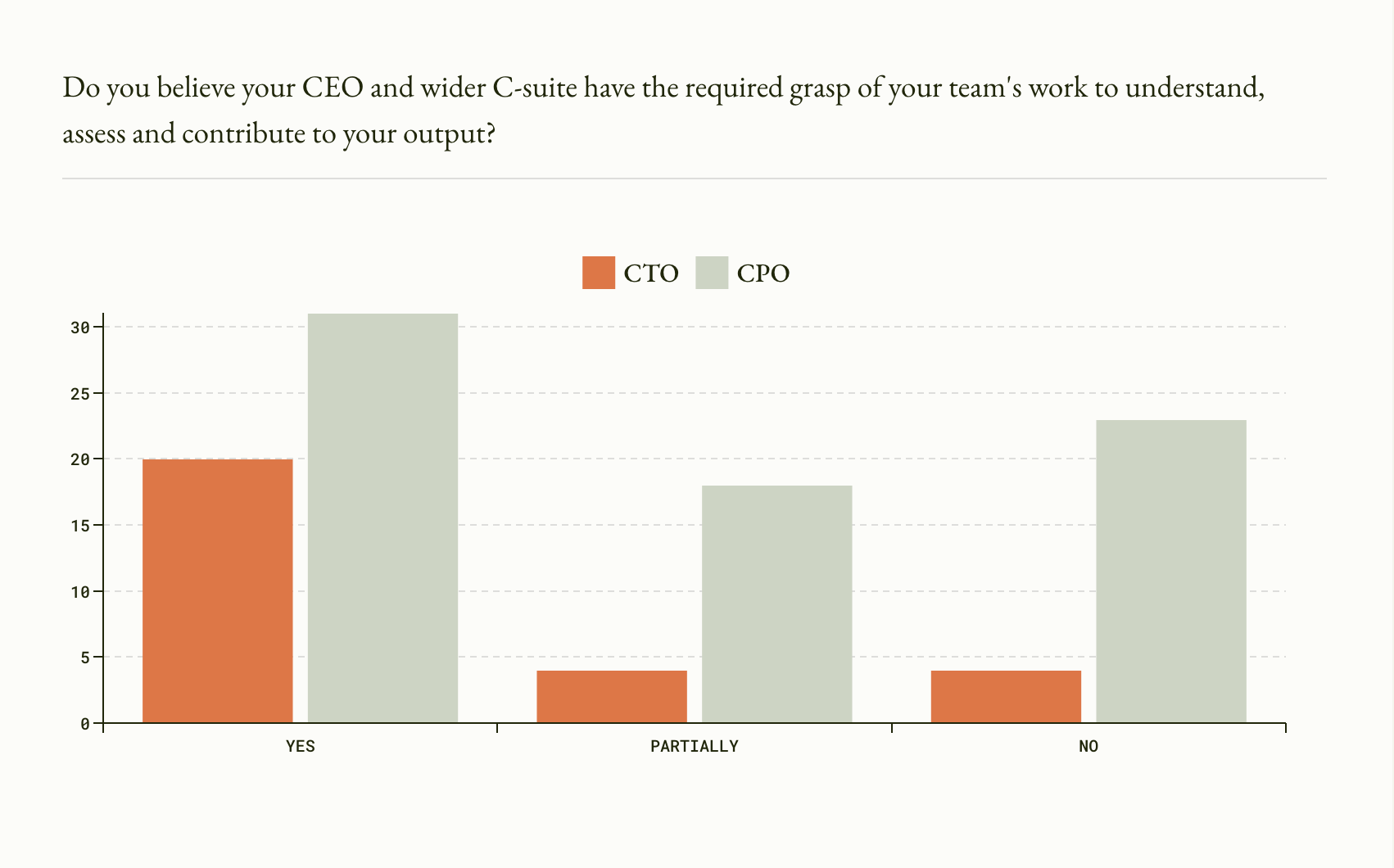In this MTP Leader panel, our line-up of experts join Emily Tate, Mind the Product’s Managing Director, to discuss the lessons they have learned on the path to becoming product leaders.
Our panellists are as follows:
- Hilary Reynolds, Senior Director of Products at CBRE
- Thor Mitchell, Head of Product at Miro
- Sushni Tumu, VP of Product at Athletic Greens
- Faye Benfield, Former Head of Product and Delivery, Parkinson’s UK
Moderated by Chris Massey, Product Manager at The Access Group
Watch the video in full or read on for the summary:
In brief:
- Seek out mentors early on, and don’t compromise on hiring
- You need to learn patience and determination and not to provide an answer all the time. You also need to be comfortable with being wrong
- Remember that leadership is almost entirely about managing people
- You don’t need to decide between a leadership or individual contributor career path, you can switch between the two
What do you wish you’d known when you started as a product leader?
Faye, who has worked largely in the charity sector, says she wishes she had known how often you have to explain what product management is. “I would have, really early on, come up with a really good definition that I could use again and again.”
Sushni says she would have found a mentor earlier: “I sought out mentorship halfway through my career. And it did so much good to me along the way, just getting great advice from extraordinary people from all walks of life. I think I would have started right at the beginning, if I had to do it differently.”
Thor says the one thing he would highlight is not to compromise on hiring. “I've certainly been in situations where I felt a lot of pressure to fill a role quickly, or I've been under pressure to fill a role with a particular person that the founders like or the board likes. I've learned that hiring well avoids everything I hate the most about this role, which is managing underperformers, managing the fallout of underperformance on the morale of the rest of the team, dealing with difficult performance review conversations, in some cases, having to let people go.”
Hilary says she wishes she had had more discipline about moving from being an individual contributor to product leadership: “You have to learn to let go of how you do things, and the control of the process that you would like to follow… that made me uncomfortable when I first started.”
How do you delegate?
You need to be clear about the objectives of what you’re delegating and perhaps be a little more instructional with a non product person, Hilary thinks. Faye comments that as a product leader you will likely have your own version of an answer and it takes determination and patience to not provide a solution every time. It’s important to ask your product people what they think and how they would approach things.
Sushni emphasises the value of KPIs when delegating. It helps her to say to her product team “this is the outcome, these are the KPIs we’re focused on… with non product people we’d lay out the expectations more clearly”.
“Something I definitely had to learn over time,” says Thor, “was to judge the right level of direction to give someone based on their experience, seniority, comfort, level, confidence, etc. One mistake I made early on, after I first took a leadership role and wanted to empower teams, I left some junior PMs without enough direction. And they struggled and they didn't have the confidence to assert a strong opinion as to vision and strategy and so forth.”
Is experience or mindset more important when you’re hiring?
Thor says he’s still working this one out. Team leadership is almost entirely about managing people. “It's all about how you build effective teams. And how you coach effective teams – and the team effectively becomes the product that you're managing.”
Hilary says that when she was building her leadership team she looked for leadership components more than product experience. “The most important thing at the end of the day is being able to lead teams, being able to coach teams,” she says.
Hilary looks for what she calls “green shoots” during the first few weeks of a new hire. “Nobody needs to be perfect, but are you seeing the behaviors, the attitudes, are you seeing them pick things up? I call it green shoots, and it naturally comes in the first eight to 12 weeks. If you're not seeing sufficient green shoots, make a very quick decision from a hiring standpoint, because underperformance creates a cascade down into the team."
Sushni adds that open conversations with your team to evaluate strengths and weaknesses are invaluable. “Making them about the success of the team, and success of your goals, really enables you to have these conversations effortlessly.”
How do you decide on a leadership or individual contributor career?
Sushni feels that there’s no one point where you have to decide – you can move between IC and leadership roles throughout your career. “Whether you're a product leader, or a product manager, you're a permanent problem solver,” she says. Faye adds that to be a product leader you must enjoy managing people and seeing them grow and develop. “The people aspect is so significant in leadership, you have to be comfortable with it.”
Hilary says she had sound advice from a mentor early in her career: “He said, ‘don't look at titles, don't look at anything, just write down all the things you love to do. The things that give you energy, things that you're really passionate about’. And then he said, ‘go and research on LinkedIn where those things are listed’.”
How do you maintain your convictions?
A strong, trusted peer network is really helpful, says Faye, whether it’s external or within the organisation. And you should also rely on your team, she says.
Thor says that it’s important to be comfortable with being wrong – and to be comfortable with changing your position quickly and assertively, based on better information.
Any advice on protecting your mental and emotional well being?
Faye says: “I suggest figuring out what your story is early on: crafting your story, and telling a story. By articulating your story, you're also telling it to yourself.” You start to build confidence, understand your skills and strengths, where your gaps are, when you need to lean on others. “You can sell yourself internally, you can sell your work, you can build your career, essentially. But having that focus from the beginning will put you in really good stead.”
Sushni recommends maintaining a growth mindset, and to make sure you love the product that you will be leading, because that in itself will help you become a better leader, and that you do your best work.
Thor says you shouldn’t be afraid to invest in yourself. “It's okay to spend some of your learning and education budget on yourself, and it's okay to set aside some time for your own growth and personal development.”
Hilary recommends you remember your strengths. Don’t just focus on what you have to learn and what you’re uncomfortable with. “You get some comfort and safety focusing on what you're you're good at, and that helps to counterbalance your discomfort when you're learning something new.”
A new training course for product leaders
Mind the Product has just launched a four-week, part-time remote course on becoming an effective product leader. It focuses on the key responsibilities of a product leader: building empowered product teams and working with the organisation to achieve better product outcomes.
You can find out more here.






